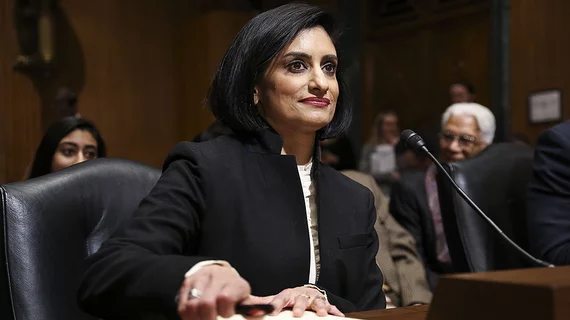Head of CMS slams Medicare for all
CMS Administrator Seema Verma does not support expanding the government-sponsored healthcare programs she oversees to all Americans. Verma spoke about her non-support for Medicare for all, or universal healthcare coverage, in a recent speech, arguing such a healthcare system would strip Americans of their private insurance, increase healthcare costs and put seniors at risk of losing access to care.
“These proposals are the largest threats to the American healthcare system,” she said of Medicare for all and a public option for healthcare coverage in comments at the Better Medicare Alliance 2019 Medicare Advantage Summit on July 22.
Verma has previously voiced her opposition to Medicare for all, including calling such a system “scary.” President Trump has also criticized Medicare for all, which is supported by more than half of Americans. Trump penned an op-ed in late 2018 opposing universal healthcare.
The cost of a Medicare-for-all system has been estimated at more than $32 trillion over 10 years.
Verma criticized the cost of universal healthcare in her comments, slamming potential tax responsibilities.
“Medicare for all advocates say they want free healthcare, but in the end, someone’s always picking up the tab,” she said. “In this case, it’s American taxpayers.”
She similarly criticized a public option system, which would allow Americans to opt or buy into Medicare. According to Verma, a public option would leave healthcare providers with significantly lower payments.
“The secret of the public option is that it’s only cheaper because it uses the force of government to strong-arm doctors and hospitals into accepting below-market payment rates,” she said.
In her embrace for “market forces” “to address the underlying cot drivers in our healthcare system,” Verma also noted that U.S. healthcare utilization is not much different than other countries, but prices are much higher. However, a recent study revealed U.S. healthcare cost increases, specifically drug costs, are largely driven by rising prices by providers and companies. At the same time, out-of-pocket costs for patients have continued to rise over the last several years.
According to Verma, government intervention is not the answer to these market failures on patients. Instead, there has never been a “truly competitive market in healthcare,” she argued.

